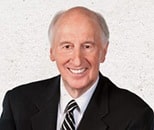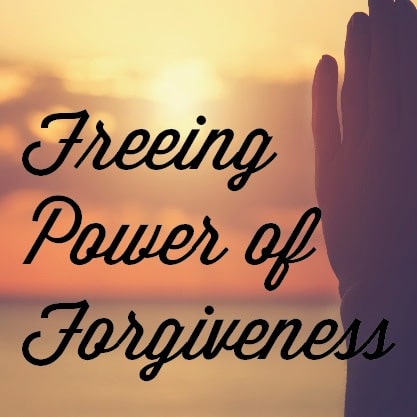And be kind to one another, tenderhearted, forgiving one another, just as God in Christ forgave you. – Ephesians 4:32
The flight attendant closed the heavy cabin door behind me as I boarded the plane to Portland. My schedule was solidly booked with back-to-back engagements—just that morning, I had preached multiple services at the church before getting on the plane in Burbank. As soon as I arrived in Portland, I would be taken directly to the place where I was speaking and where I was expected to begin immediately.
As I went to hang my garment bag right by the door that was reserved for first-class patrons, I found the compartment was packed full. This irritated me because there were only about three people in first class. I needed to hang it there because I had to get off the plane fast . In my mind, there was no excuse for my need not being served. The flight attendant offered to take my bag and hang it in the back. That was kind of her, but it meant I would have had to swim against the tide of humanity to get back there to retrieve it, making me late getting off the plane. I sat down in my seat feeling rankled. I was tired from the morning services, but even that didn’t justify how annoyed I was.
I thought, “I’m going to write the president of this airline. I won’t name the flight or the attendant, but I’ll tell him he needs to sharpen things up.” Then the thought occurred to me that maybe there was no room in the back to hang things either, and she might squeeze mine into a compartment with someone else’s. So I decided, just out of curiosity, to go back there and look. I didn’t say anything unkind to her because, after all, I am a Christian. But as I started toward the back, a Voice spoke deep inside me: “Sit down and let it go.”
Does the Lord ever speak to you, and then you pretend you don’t hear Him? I just kept trudging toward the back.
I had no way of knowing that I was about to cross paths with a four-year-old boy seated on the aisle who would be the instrument of changing everything about that day for me. The boy had just drawn a picture with a black felt-tip marker and was happily showing it to his mom. At the exact instant that he raised his hand with the marker, I passed him in the aisle. The collision of his black marker and my light gray slacks added up to a bold expression of calligraphy right across the front of my trousers.
I had thought I was going to write a letter to the president of the airline, but the God of the universe wrote me a letter instead. It said, “Sit down and let it go.”
I did sit back down, I did let it go, and I did say, “Lord, forgive me for my impatience and unforgiveness.” Most of us laugh at a story like this because we can all identify with it. We allow ourselves to get irritated by issues that, in perspective, are relatively insignificant. Yet, with regard to matters both small and great, there is a tremendous freeing power in forgiveness. When I finally heeded what the Lord was saying to me and sat down, I felt a literal, physical release upon letting it go. My two-hour flight to Portland was restful, and I felt refreshed when I got off the plane. Notwithstanding the momentary inconvenience of having to go get my bag, I got to my destination on time. As a matter of fact, one of the most powerful services I’ve ever been part of took place that night.
Forgiveness is an issue that goes far beyond someone not saving space for your garment bag. It can involve attitudes that are unloving, rejecting and calculatingly cruel. Other times, unforgiveness is manifested in passive, cold-shoulder responses toward people who don’t meet our standards. We may not like the way other Christians do things. We may feel compelled to insist upon our rights. We often have judgments to pass on just about everything, right on down to being sharp with a waitress who’s service is slow or less than gracious. It never occurs to our minds that she may have had the hardest thing in her life happen to her before she came to work that morning.
This is not to argue for the proposition that abuse should be overlooked as if nothing happened. But so often, things wind up in a tangle of unforgiveness and smallness of soul, where resentment, bitterness and anger settle into our hearts. Jesus pins it down to one issue: having been forgiven, we have essentially lost our right to be unforgiving, critical, judgmental or retaliating toward others. Forgiveness doesn’t mean that what is being forgiven is right; it means rescinding the right to be angry, hateful or judgmental—to get our “pound of flesh.” It means I have given up my right to sit in judgment upon anything that doesn’t suit me—all the way down to where I hang my garment bag. Further, it is not even within our human strength to balance the scales of cosmic justice. Doctors agree that the majority of human afflictions have their roots in some kind of bitterness, resentment or unforgiveness.
At some point we must come to terms with the fact that we have been given an awesome grace that puts us under an awesome point of accountability—to forgive others because we have been forgiven. These words are not intended to induce guilt, but to release people into freedom.
Dear ones, this day I would like to encourage you to receive the complete release that God offers through His Son Jesus Christ by praying in the manner He gave to His disciples: Lord, forgive me my sins as I forgive those who have sinned against me (Matthew 6:12, paraphrased). This is the freeing power of forgiveness—offering to others what God has so graciously—and at such profound sacrifice—bestowed upon us.
Copyright © 2003, 2013 Jack W. Hayford, Jack Hayford Ministries, Van Nuys, CA 91405
Our gift of this article by Pastor Jack Hayford is made possible by your gracious support of the ministry. Partner with us online or call toll-free 1-800-776-8180 to donate (within the U.S.).



